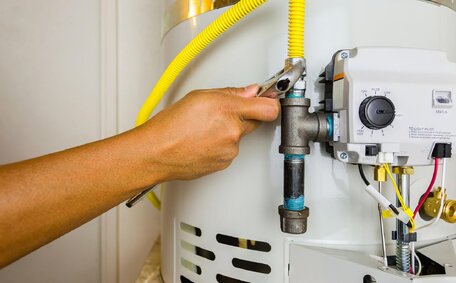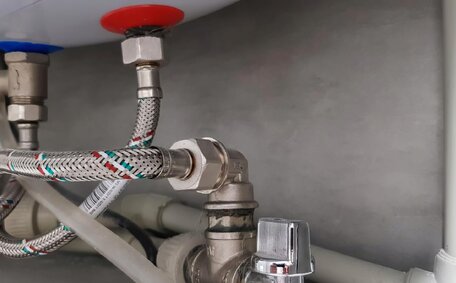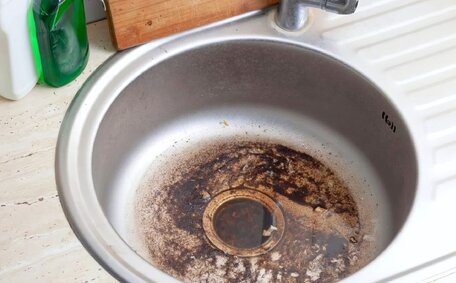Understanding Why Safe Appliance Disposal is Important
The safe disposal of gas appliances—such as fridges, freezers, stoves, and air conditioners—is vital for environmental safety. Annually, Australia sees over 500,000 air conditioners and dryers discarded, highlighting the need for responsible disposal.
Incorrect disposal can result in gas leaks, fires, and explosions, particularly if gas appliances like cookers aren’t properly removed.
There are legal implications too. Neglecting appropriate disposal procedures for unused appliances can lead to substantial fines.
Australian laws are unequivocal: Appliances, such as gas heaters with greenhouse gas refrigerants like CFCs, must be degassed by a certified specialist prior to disposal. there’s a collective responsibility to safeguard the environment and public health from the dangers of improperly discarding items such as gas stoves.
With foresight and potentially utilising our services, you can decommission old appliances, including gas cylinders, responsibly. With community services that can also provide pickup, drop-off points and waste collection stations, responsibly recycle your end-of-life appliances is achievable.
Explore professional removalists to recycle gas-related appliances, consider donation programmes, and recognise the risks from gases and fluids requiring specialised handling.
Identifying Hazardous Materials in Old Appliances
Disposal of old gas appliances, particularly those with a gas cylinder, can be complex due to the hazardous materials they contain, which demand careful handling. Key types of waste to look out for, which encompass various hazardous materials, include:
- Refrigerants - Many old refrigerators, freezers, and air conditioners contain CFC and HCFC refrigerants, which are damaging to the ozone layer.
- Foam insulation - Found in fridges and freezers, the polyurethane foam also contains CFCs and must be removed safely.
- Compressor oils - These fluids require responsible collection by recycling facilities.
- Batteries - Batteries harbour dangerous chemicals.
- Mercury switches - Some older chest freezers used mercury tilt switches, which if not handled properly, can cause serious health issues.
Awareness of hazardous waste enables pre-disposal checks and ensures professional services properly manage appliance disposal.
Safely Turning Off and Disconnecting Gas Appliances
When preparing to dispose of gas appliances, adhering to gas safety protocols should be the top priority to remove gas safely and prevent leaks or explosions. Follow these critical steps for the safe disposal of gas appliances:
- First, switch off the gas. Find the valve to halt gas flow and safely disconnect the appliance.
- Disconnect the gas line using an adjustable wrench, make certain to detach the flexible connector pipe from the appliance.
- Check for remaining gas by sniffing at joints for leaks, ensuring the supply is fully stopped, and resolve any persistent leaks quickly. Enlisting a licenced gas fitter is recommended for supervision.
- Extract batteries and harmful fluids including oils and cooling agents to facilitate correct disposal.
- Remove doors/lids. Take these off appliances, protecting them from direct sunlight ahead of transportation for safety and ease of movement.
Upon completion, the gas appliances will be primed for safe collection by disposal services. To test, switch off, and remove unwanted gas appliances from your home, contact us for expert Castle Hill plumber assistance.
Removing and Handling Hazardous Materials
Safely removing and handling hazardous materials from old gas appliances is a critical part of the disposal process in your household. To guarantee safe disposal, consider these essential steps:
- Hire a licensed gasfitter for degassing - Untrained individuals must not remove regulated refrigerants from a gas bottle’s cylinder valve—a task for approved handlers only, as it’s not mere general waste removal.
- Ensure foam insulation is removed - There’s no shortcut; the polyurethane foam in fridges and freezers also contains banned CFCs and needs professional removal.
- Drain compressor oils & other fluids - Responsibly gathering and recycling any residual coolants, lubricants, or battery acids requires special attention.
- Follow safety protocols - STRICT safety gear like gloves, eye protection and proper ventilation must be used, This is crucial for personal protection and efficient waste recycling.
- Label transported appliances - Cleary identify degassing status and any hazards to protect workers handling the end-of-life appliances.
Adhering to best practises when dealing with hazardous materials can help ensure both safety and environmental protection. For help with extracting hazardous substances from appliances at home, seek advice from licensed experts at Castle Hill Plumbing before disposal.
Options for Recycling Old Appliances
There are several responsible options to recycle your old gas appliances rather than sending them directly to landfill:
- Council cleanup services - Many councils, including Castle Hill, endorsed by Planet Ark, provide kerbside collections where white goods can be recycled. Check out your local council on scheduling hard rubbish collection services.
- Retailer take-back programmes - Some stores and chains will pick up your items when delivering new appliances. Ask retailers about trade-in or removal policies.
- Recycling centres - Community recycling stations can accept other items including household appliances that can dropped off, such as fridges and stoves. Find your nearest drop-off location.
- Specialist pick-up - Services like Cleanaway or JR’s provide recycling collection and items can be dropped off safely for coolant degassing.
- Charitable donations - Appliances that are in good working order can still be donated to community organisations in need.
Responsibly recycling end-of-life gas appliances reduces waste impact. Contact experts like Castle Hill Plumbing if needing assistance removing and transporting unwanted whitegoods from your Sydney home.
Finding Reputable Metal Recyclers
Finding a trustworthy metal recycler is crucial when disposing of old gas appliances with metal parts, such as gas canisters. This practice ensures materials such as metal and plastic are sustainably repurposed, preventing them from going to landfill, facilitating the safe recycling of outdated appliances.
Here are some tips for identifying trusted metal recyclers:
- Check credentials - Licenced operators, like a certified test station, should have relevant permits and follow environmental regulations around storage, transport, and processing.
- Take your sensitive materials from appliances to services that ensure data destruction, so they don’t compromise privacy when destroyed.
- Validate track records - Choose established companies with proven procedures and positive reputations.
- Evaluate drop-off sites, confirming that they have securely managed areas for hazardous materials.
- Learn about processes - Responsible firms will explain how they efficiently recycle different metals.
Doing background research helps you take care with choosing metal recyclers that reliably process end-of-life appliances. For recommendations on reputable waste disposal services handling hazardous materials from your Sydney home, consult specialists like Castle Hill Plumbing.
Arranging Professional Removal by Licensed Gas Fitters
To safely retire appliances such as fridges, stoves, and heaters, enlist professional removal services. Gas appliances contain hazardous materials that require special handling by qualified technicians.
Licensed gas fitters possess the necessary expertise to extract old appliances and manage hazardous substances such as:
- Degassing refrigerants
- Draining oils and fluids
- Disconnecting gas lines
- Removing batteries and insulation
- Safely transporting appliances
Trying to discard gas appliances without qualifications could lead to leaks, contamination, and breaches of Australian regulations on prohibited substances.
Contact Castle Hill Plumbing for professional removal of your end-of-life gas appliances, ensuring safety and compliance with regulations in Sydney. Our technicians follow stringent safety standards to help you avert risks and penalties. Trust us to responsibly decommission old ovens, fridges, air con units and heaters while caring for the environment.
Alternative Ideas for Reusing/Repurposing
In addition to recycling, consider environmentally sound ways to repurpose old appliances, including gas canisters:
- Never put appliances in working order aside for trash - Consider donating older but still functioning items like fridges or stoves to community organisations and charities instead. This reduces waste while helping those in need, and the goods include appliances like fridges and stoves.
- Salvage usable parts - Many components like doors, shelves, drawers, knobs and trays may be reusable. These could be repurposed for household projects or sold separately.
- Repurpose into toolsheds or storage - Deconstructed gas appliances like ovens or fridges make sturdy backyard sheds for garden tools, kids’ playhouses or general storage with some modifications.
- Create quirky furniture - Stripped down gas cookers, ovens and other white goods can become the base for creative DIY furniture pieces like tables, chairs or hall benches.
Checking all options for extending an appliance’s lifecycle over time through restoration, repurposing or upcycling helps move the needle on sustainable waste practises. And you may discover handy uses for old appliances that support households and communities while caring for the environment.
Locating Local Appliance Pickup and Disposal Services
To responsibly dispose of end-of-life gas appliances, including fridges, stoves, and heaters, utilise local removal and recycling services that are well-versed in area-specific regulations.
Here are some options to consider in the Castle Hill region:
- Contact The Hills Shire Council - Many councils offer annual cleanup services taking household items; LPG cylinders can be included for disposal or recycling. Check the website for scheduled dates when you can leave appliances curbside.
- Visit Community Recycling Stations - Several nearbycommunity recycling centres accept whitegoods like ovens and fridges. Search for drop-off locations in your local in your local government area.
- Hire Specialist Pickup Services - Companies like Cleanaway work in partnership with councils for responsible appliance recycling and can arrange booking and collection.
- Contact Retail Stores Regarding Takeback - When purchasing a new fridge or washing machine, check if your service provider offers policies on collecting your old model for drop-off at recycling depots.
For comprehensive assistance with gas appliance disposal, including pick-up and transport from your home in Castle Hill, reach out to Castle Hill Plumbing’s experienced team. Our experts handle everything safely, legally and sustainably - including de-gassing and certifications.
Following Proper Procedures to Avoid Leaks and Contamination
Proper procedural adherence when disposing of gas appliances is essential to avert hazardous leaks and environmental contamination.
Key steps include:
- Hire qualified professionals for removal and degassing - Attempting this yourself risks leaks and violations.
- Make sure to turn off gas appliances and disconnect them - Confirm gas valves are completely shut off and pipes detached.
- Drain hazardous fluids from tanks, including coolants, oils, and batteries, and remove insulation materials for secure recycling.
- Adhere to transportation guidelines - Secure appliances, label any hazards and notify facilities of degassing status.
- Drop-off at approved locations - Find out where can use reputable recycling centres that meet environmental standards.
Neglecting critical precautions could lead to dangerous leakage of greenhouse gases during handling or disposal. We all have a shared duty to avoid contributing to climate change or harming the local environment in Castle Hill and surrounding regions.
Responsible degassing and recycling of obsolete gas appliances promotes sustainable resource recovery and minimises waste. If in doubt on how to safely dispose of end-of-life fridges, stoves or ovens, contact the expert team at Castle Hill Plumbing. We professionally manage the entire process - from removal to transportation to eco-friendly recycling.
Depend on our qualified specialists to handle your outdated appliances correctly, safeguarding against potential hazards. We offer support for the community to make eco-friendly choices through our guidance and services.






